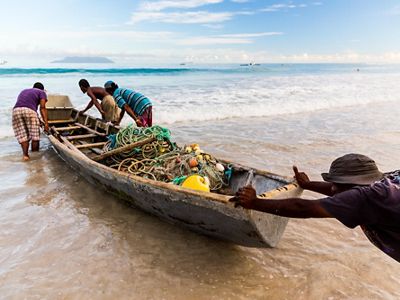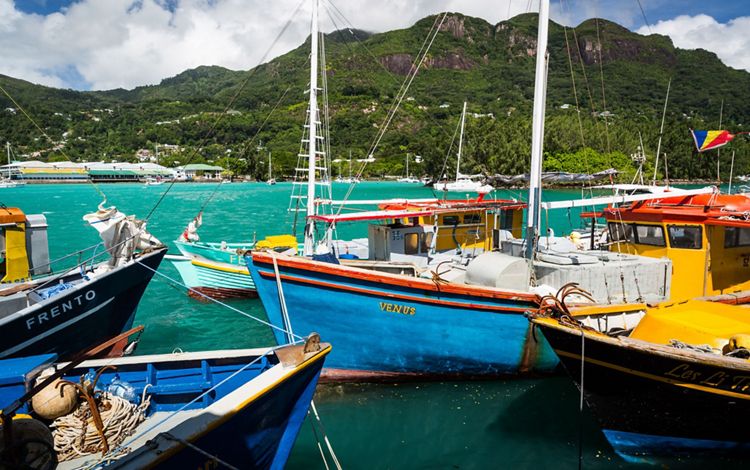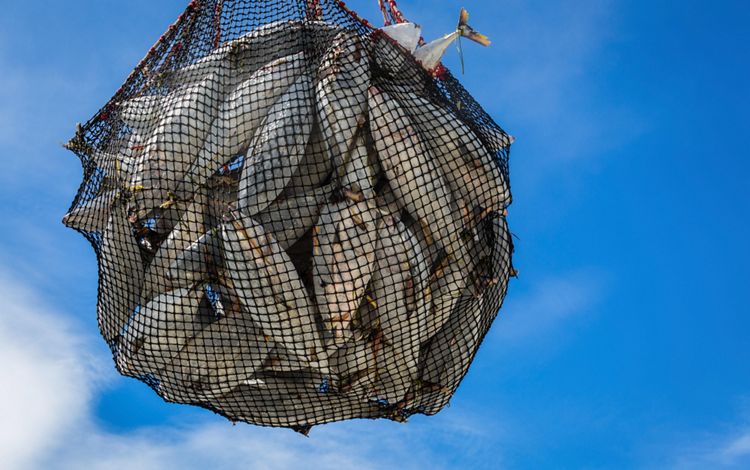Ocean Protection with NatureVest

Debt Conversions for Marine Conservation and Climate Adaptation
Around the world, Small Island Developing States (SIDS)—or more accurately Large Ocean States—are excessively burdened with sovereign debt and at the same time, face intense vulnerability to rising seas and climate change. With 58 such nations across the globe, projections show that by 2040, over 80 million people will live in these small islands, on the front lines of our changing climate.
In the face of rising tides, increasingly severe storms and over-fished waters,, coastal communities around the world must take action. Fortunately, leaders across many sectors are beginning to recognize potential solutions that already exist—in nature. Not only that, but we’re seeing the adoption of new models for financing these solutions that are potentially replicable around the world.
To incentivize marine and coastal conservation, NatureVest is working with governments and creditors to structure debt restructuring in exchange for governmental commitments to expand their marine managed areas. Debt restructuring, attractive for financial reasons, also allows for more investment in marine conservation and climate adaptation, benefitting coastal communities. NatureVest aims to use private investment capital to purchase debt at a discount in an effort to free up capital to fund conservation efforts in perpetuity.

Seychelles Debt Conversion for Marine Conservation and Climate Adaptation
The first ever climate adaptation debt restructuring that also includes a strong marine conservation component was finalized between the Government of Seychelles and its Paris Club creditors. The agreement introduces impact investing to debt restructuring and provides proof of concept for other Small Islands Developing States to replicate.
The deal is supported by The Nature Conservancy through its NatureVest division and Africa program and was negotiated in the Paris Club with support from the French Government. The restructuring will provide funding to support adaptation to climate change through improved management of coasts, coral reefs and mangroves.
The financing will promote implementation of a Marine Spatial Plan for the entire Seychelles Exclusive Economic Zone, a territory approximately 3,000 times the size of their land mass. The deal will also ensure approximately 400,000 km2/98.9 million acres (an area larger than the size of Germany) will be managed for conservation as marine protected areas within five years.
The debt restructuring uses a combination of investment capital and grants to protect and reduce the vulnerability of the marine and coastal ecosystems of the Seychelles. It also provides Seychelles with an innovative financial tool to restructure its debt and allow its national government to free capital streams and direct them toward climate change adaptation and marine conservation activities that benefit their fisheries and tourism industries, and ultimately the livelihoods of their citizens.



An Island Nation with Important Natural Assets
The low-lying geography of Seychelles, a nation of 115 islands in the Western Indian Ocean, makes its people and economy particularly vulnerable to the impacts of climate change. Increased storm frequency, rising sea levels and coral bleaching from warm ocean temperatures threatens the vital pillars of Seychelles’ economy: tourism and tuna fisheries.
A Path Toward Replicability
This combination of public and private funds—each leveraging the other—creates a new model for public/private co-investment debt restructuring in other areas of the world, notably other large ocean states.
The model is already attracting interest from a number of other countries and international institutions that are interested in pursuing a similar approach to financing their own marine conservation and climate adaptation.
Innovation for Impact
At its most basic, this debt restructuring converts a portion of Seychelles’ debt to other countries into more manageable debt held by a local entity; this is accomplished by refinancing it with a mix of investment and grants.
The Nature Conservancy raised $15.2 million in impact capital loans and $5 million in grants to buy-back $21.6 million of Seychelles debt. The cash flow from the restructured debt is payable to and managed by an independent, nationally based, public-private trust fund called the Seychelles Conservation and Climate Adaptation Trust (SeyCCAT).
Debt service payments fund three distinct streams: one for work on the ground that will help reduce risk through improved management of coasts, coral reefs, and mangroves, another to repay investors and a third to capitalize SeyCCAT’s endowment, which can then support conservation work into the future.
Naturevest, The Nature Conservancy and JPMorgan Chase & Co. have been awarded the Financial Times/ International Finance Corporation (IFC)’s Transformation Business Award for Achievement in Transformational Finance.